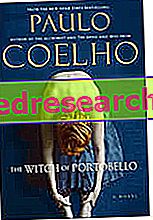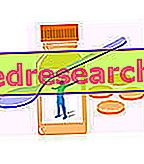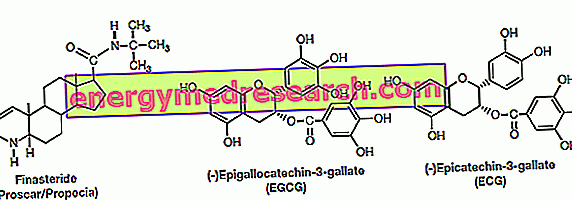Edited by Fabio Grossi
Paulo Coelho is considered the most "popular" writer of the moment, as well as a true "guru" of literary marketing, selling nearly a hundred million books worldwide and having been translated into 64 languages.
Coelho takes care of fitness in "I'm like the river that flows", in which he praises a particular sport, Nordic walking or "Nordic walking", where you walk using the ski poles. He discovers Nordic walking in the fall of 2003: while walking in the center of Stockholm, he notices a woman walking with ski poles. At first he thinks that this woman is crazy, but then his editor explains that with that practice, in addition to his legs, his arms, shoulders and back muscles are trained, making that exercise very complete and that has become his pastime favorite, along with archery .
After some time he remembers the famous Nordic walk and decides to use it, in the company of his wife. In the text he actually describes it as a fantastic discovery and points out that his wife has learned on the internet that, with sticks, 46% more calories are burned than a normal walk.
And so Nordic walking has become part of their daily life.
But it is by carefully browsing the pages of his latest biennial novel - " La Strega di Portobello" - that we have found interesting and more direct references to our activity as trainers and fitness instructors.

That of Athena is a life without roots, which drives her to travel the world in search of something that she feels does not belong to her; does not pay attention to what he has (a separate son, to whom he proves to be very attached), but on what he does not have, on those holes or voids that obsess her. Daughter of a gypsy, adopted by a wealthy Lebanese family, she lives in the most disparate places, until she reaches the London district of Portobello. It is precisely here that - shortly thereafter - he will reveal all his characteristics of witch, through premonitions, dreams and medical diagnoses, to say the least miraculous. One evening - in a moment of trance in which she is transfigured into a certain Hagia Sofia - the protagonist begins a monologue that calls into question arguments such as diet, lifestyle and exercise .
We will now try to comment on these verses, verbatim reporting some salient passages.
... It was then that the voice of Hagia Sofia said:
"Today, before concluding, we will talk about diet. Forget all those stories of dietary regimes."
Diet? Forget this history of dietary regimes?
"We have survived all these millennia since we have been able to eat. And today, it seems, that this has become a curse. Why? At forty, what drives us to try to fight for the body when we were young? Is it possible to stop this dimension of time? Certainly, no. And why should we be thin? "...
Let us dwell on this passage for a moment.
Dear witch, it is not a question of being thin or fat: let's think only of the prevention of cardiovascular risk, leaving aside the speeches on the aesthetic aspect. In general the cardiovascular risk begins to increase with a certain relevance - in men - after the age of 45 and in women after the age of 55, for the latter coinciding with the advent of menopause.
A high body weight causes an increase in cardiovascular risk, also because overweight is often associated with hypertension, dyslipidemia and diabetes. It should be emphasized that body weight tends to increase with age and that one of the most correct ways to assess the resulting risks is represented by the calculation of the body mass index -body mass index (weight / height²), which also takes into account the body structure of the subject. In normal-weight subjects this value is less than 25, while in overweight subjects it is between 25 and 30; values above 30 indicate obesity, or a true pathological state.
We continue with the reading ...
... "We buy books, we go to gyms, we waste a considerable part of our concentration in trying to stop time, while we should celebrate the miracle of being on this earth. Instead of thinking about how to have a better life, we are obsessed with weight . "
"Forget this illusion. You can read hundreds of books, repeat thousands of physical exercises and subject yourself to all the privations you will be able to come up with, and you will find yourself always and only with one possibility: stop living, otherwise you will get fat." ...
Witch, do not overdo it: we do not necessarily need to perform or repeat thousands of physical exercises and subject ourselves to all these terrible privations. We would like to point out that a sedentary lifestyle is one of the worst habits of modern life and that poor physical activity has several unfavorable effects: for example, it reduces the body's energy consumption, favoring - in the most striking cases - obesity; or it reduces the value of HDL cholesterol in the blood, which plays an important protective role. In addition, people who lead a sedentary lifestyle incur an incidence of cardiovascular disease from 2 to 2.5 times greater than those who perform regular exercise. My dear Strega di Portobello, in reality it would be enough to have a correct and adequate aerobic activity - and not thousands of exercises, as you say - to favorably influence many health risk factors.
But Athena -alias Hagia Sofia - realizes that he has a little exaggerated, of being temporarily out of the seed. Feel below how his prayer continues:
"Eat with moderation, but with pleasure: evil is not in what enters, but in what comes out of the mouth. Remember that, for millennia, we have struggled not to die of hunger." ...
... "Use the energy and commitment of a diet to nourish yourself with spiritual bread. You must understand that the Great Mother always grants abundance and wisdom - follow these few dictates and you will not gain more weight than time requires.
Instead of artificially burning calories, try to turn them into the energy needed to make dreams come true: no one has kept thin for a long time just thanks to a diet. "
It is quite difficult to blame her, isn't it?
Dulcis in fundo, at the end of all the sermon by Hagia Sofia, Paulo Coelho gives us a resounding assist - always through the mouth of one of the witnesses who describe the story - giving us a comment to say the least exceptional:
"After having dealt with a particularly delicate subject such as religion, the famous Athena had gone further: she had talked about diet - a topic of national interest, more important than wars, strikes or natural disasters. Not everyone believes in God, but everyone wants to lose weight. "
"Not everyone believes in God, but everyone wants to lose weight", so ...
At this point it is up to us personal trainers to satisfy this collective need for physical fitness. So what are we waiting for?
I would like to conclude by addressing all my fellow fitness instructors with the punctual support of the words of Paulo Coelho, who in one of his first published works - " The Way of Santiago" -, spurring us on to the continuous training and constant practice of what we learn, he claims:
"The path of wisdom ... must have a practical application in life, otherwise wisdom becomes a useless thing and rusts like a sword that is never used"
Articles consulted :
Recommended texts and bibliographical references :



